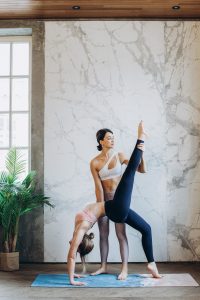Physical activity is an essential component of a healthy lifestyle, but it’s important to recognize that not everyone can participate in traditional forms of exercise. Individuals with disabilities, chronic health conditions, or other physical limitations may face barriers to accessing fitness programs and facilities. However, there is a growing movement towards inclusive approaches to physical activity that aims to provide opportunities for everyone to engage in fitness and lead an active lifestyle.
Adaptive fitness is at the forefront of this movement, offering tailored exercise programs and adaptive equipment to accommodate people of all abilities. By embracing adaptive fitness, individuals with disabilities or physical limitations can experience the numerous benefits of regular physical activity, including improved strength, endurance, and overall well-being. Inclusive fitness facilities and programs also create a sense of community and support, fostering an environment where all individuals feel welcome and able to participate.
In addition to the physical benefits, inclusive physical activity also has a positive impact on mental health and overall quality of life. Engaging in fitness activities can boost confidence, reduce stress, and provide opportunities for social interaction. For individuals with disabilities, access to adaptive fitness programs can be empowering, promoting independence and a sense of achievement. Inclusive physical activity is not only about exercise; it’s about promoting inclusivity, diversity, and equality in the fitness community.
It’s important for fitness professionals, facility managers, and policymakers to recognize the importance of creating inclusive environments and providing access to adaptive fitness resources. This can involve implementing accessible facility designs, offering a range of adaptive equipment, and providing training for staff to support individuals with diverse needs. By prioritizing inclusivity and accessibility, the fitness industry can better serve the needs of all individuals and contribute to a more inclusive society.
Furthermore, raising awareness and promoting the benefits of inclusive physical activity is key to changing perceptions and attitudes towards fitness for individuals with disabilities. Highlighting success stories and showcasing the achievements of individuals who engage in adaptive fitness can inspire others to pursue their fitness goals. By celebrating diversity and sharing inclusive fitness initiatives, we can foster greater acceptance and understanding within the fitness community and beyond.
In conclusion, adaptive fitness for all is a crucial aspect of promoting inclusive physical activity and ensuring that everyone has the opportunity to experience the benefits of fitness. Embracing inclusive approaches to physical activity not only benefits individuals with disabilities or physical limitations but also contributes to a more diverse, welcoming, and supportive fitness community. By unlocking fitness for all, we can create a more inclusive and accessible environment where everyone can thrive and lead a healthy, active lifestyle.
 Next post
The Benefits of Mindful Movement: Incorporating Yoga and Pilates into Your Fitness Routine
Next post
The Benefits of Mindful Movement: Incorporating Yoga and Pilates into Your Fitness Routine
